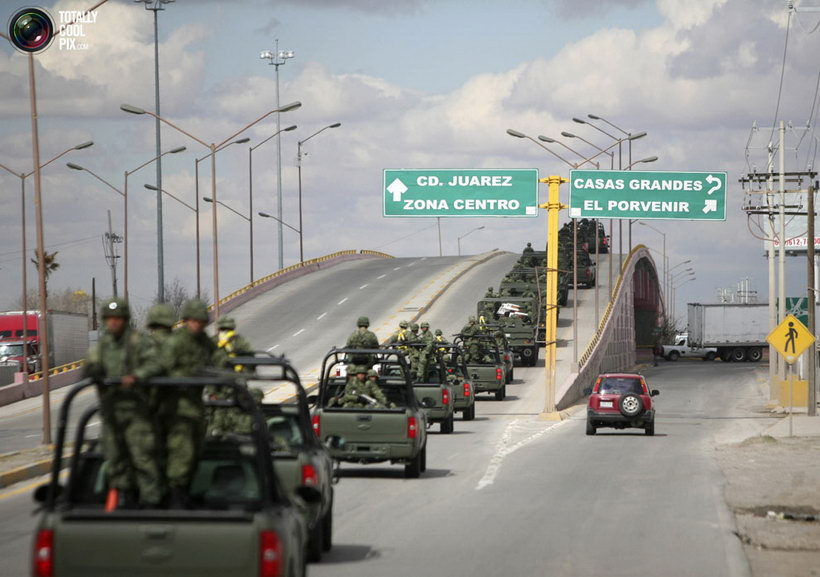If you are asked about Mexican drug cartels, your first thoughts probably turn to grotesque images of crime scenes, corpses bearing threatening messages from rival cartels or alarming stories about kidnappings and astronomical murder rates in Mexican cities. Unfortunately, the pervasiveness of these stories and images has colored the way we think about cartels, in such a way that it may negatively affect our ability to deal with the problem itself.
Criminality is clandestine by nature, and thus any information we have about drug cartels is going to be incomplete. As it stands most of the information the public knows about the cartels comes from the crime scenes they leave behind and the members who are caught by authorities.
If the only news you read about the cartels is the discovery of a makeshift smuggling tunnel, or of murders between rival gangs you begin to see the drug organizations as chaotic. Indeed, if the only thing you know about the cartels is stories of capture and images and statistics of violence, this is an understandable perception of what the cartels are.
Perhaps viewing these drug cartels as chaotic organizations is comforting. I think humans are more comfortable seeing violence and evil as being the result of chaos, something out of their control. However, this is not the full picture of what drug cartels really are.
The popular Netflix series “Narcos” has taken a step in the right direction, portraying the cartels as highly organized, complex organizations that are extremely difficult to combat at both local and institutional levels. Nonetheless, because the show must appeal to sensationalist viewers it did use images of violence in abundance.
We tend to view these cartels as bloodthirsty violent criminals and bandits. Yet, the ideal situation for any cartel is complete peace and the opportunity to operate their business uninhibited. In truth, if you look at some of the largest cartels in Mexico, the Sinaloa Cartel, the Juarez Cartel or Los Zetas none of them want violence. These cartels have identical goals to large corporations, namely, to make a profit. In this case, violence is bad for business.
Cartels are far more advanced than we give them credit for. Major cartels likely employ many accountants, experts in advertising, business scholars and even political scientists. They may study trends in political participation, or how much citizens in particular areas trust their government. They may choose to set up shop in these areas where they can more easily integrate themselves with citizens and corrupt officials.
The classic iceberg visual is useful for understanding cartels. Indeed, most people only know the tip of the iceberg when it comes to cartel activities. Yet in this case, the tip of the iceberg looks completely different from the submerged part. Public understanding of the problem is crucial. If we continue to view the cartels as just a chaotic group of ragtag individuals, we completely misrepresent the problem, thus limiting our capacity to approach solving the issue.













Clarissa • Dec 29, 2018 at 8:13 am
The author is either naive or very insane.
dj • Jan 14, 2018 at 8:17 pm
No drug cartels are ruthless, they want to rid themselves of any competition and have 100 monopoly if they could. I blame the cartels and the Users. Anybody abusing drugs anywhere in the world has blood on their hands. If they truly cared about the plight of innocents as they claim, they’d quit using.
J M • Nov 21, 2017 at 5:10 am
Pretty brave as a Caucasian living in one of the few Hetereogenous Moral-centric remote parts of the country. Move your family across the border, publish an even mild anti-DTO piece as a reporter, and we’ll wonder where you all disappeared too……
kelsey Kay • Nov 20, 2017 at 4:47 pm
So the same thing should be said about the old Italian mafia?? Samuel you sound like a clueless sympathiser, and that statement is being made by an American citizen who lives on the AZ/MEX border, one who has seen first hand the brutality and violence brought about by greedy power hungry cartels and their associates. This article is pure fiction